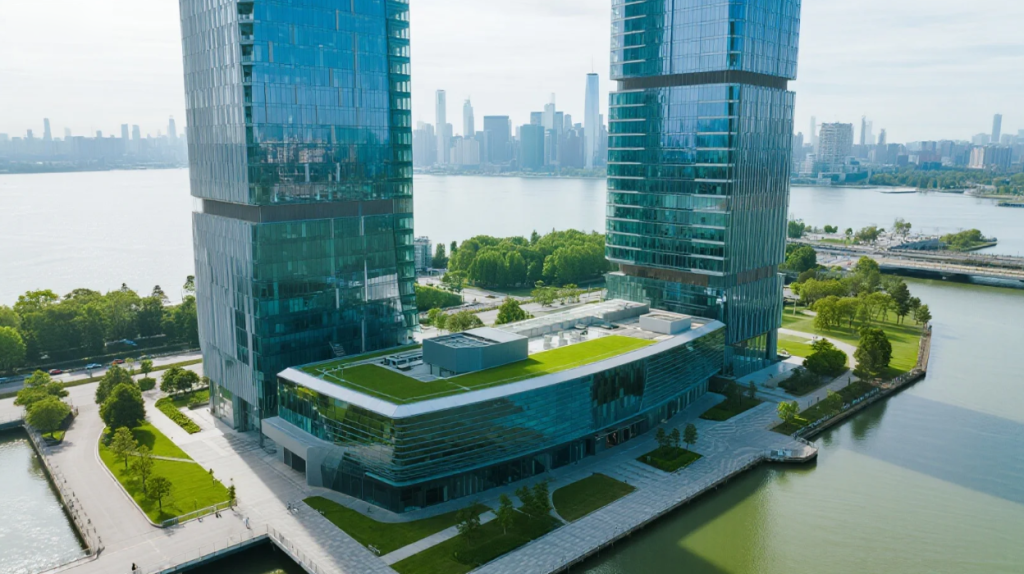Why Feng Shui Matters in Real Estate
When buying or selling property, people often consider price, location, and condition—but forget the energy. Feng Shui in real estate offers a unique lens to evaluate a home’s unseen value. It influences not just the aesthetic appeal, but the occupants’ health, prosperity, and happiness.

Problem: Properties with poor energy flow often stay on the market longer.
Solution: Use basic Feng Shui principles to enhance harmony and buyer appeal.
Case: A small house near a T-junction sat unsold for 9 months. After redirecting energy with landscaping and mirrors, it sold in 3 weeks.
Curb Appeal: Energy Starts at the Doorstep
In Feng Shui, first impressions go beyond visuals. The flow of Qi (energy) begins outside.
Quick Tips:
- Repaint the front door in an auspicious color
- Trim overgrown bushes
- Avoid sharp paths or pointed fences aimed at the door
Pro Tip: Buyers instinctively feel good around tidy, balanced exteriors. That’s energy at work.
Related LSI Keyword: Feng Shui home staging
The Front Door: Mouth of Qi
The front door is the main energy portal. If it’s broken, blocked, or poorly placed, the entire home’s energy can suffer.
Common Issues:
- Direct alignment with back door
- Facing stairs or elevators
- Cracked panels or dead plants nearby
Fixes:
- Place a welcoming rug
- Add potted plants for balance
- Use mirrors (with care) to redirect flow
Case Study: A condo with front-and-back door alignment caused restless tenants. After adding a divider and tall plant, turnover dropped by 50%.
LSI Keyword: front door Feng Shui tips
Hidden Energy: Flying Stars Method
Some homes “feel off” despite looking perfect. That’s where Flying Star Feng Shui comes in. It maps time-based energy patterns using orientation and construction date.
Example: A house built in 2004 facing NE may have an unlucky Star 5 in the master bedroom. A Feng Shui expert might add metal decor or adjust color schemes.
Fun Fact: Even non-believers report better sleep and focus after adjustments.
Secondary Keyword: real estate energy flow
Interior Layout: Flow and Function
Interior design isn’t just about beauty. The wrong layout can disturb energy, especially if the kitchen or bathroom is at the center.
Watch Out For:
- Beams over the bed
- Pointed furniture edges
- Poor lighting in key areas
Better Layout = Better Offers A staged home that uses soft rugs, round tables, and balanced lighting often gets higher bids.
Case: A staged apartment in NYC used Feng Shui layout tips and sold for 8% above asking.
Cultural Awareness in Design
If you’re selling to Asian buyers, understanding Feng Shui real estate concerns is a game-changer.
Common Deal Breakers:
- House number 4 (sounds like “death”)
- Homes at T-junctions
- Missing corners in floor plans
Pro Insight: Realtors familiar with these principles close deals faster in multicultural markets.
Secondary Keyword: Asian real estate buyers Feng Shui
Interesting Twist: Even Western buyers now ask about energy features due to rising awareness.
Key Rooms That Influence Buying Decisions
Bedroom
Most energy is absorbed while sleeping. Keep this room clutter-free, quiet, and well-ventilated.
Living Room
Should encourage social interaction. Circular seating helps create a friendly flow.
Office
Productivity suffers in dark, cramped rooms. Position the desk to face the door but avoid direct alignment.
Case Example: A home with a windowless office sat idle. Adding a skylight and moving the desk increased buyer interest dramatically.
LSI Keyword: Feng Shui bedroom layout
Avoid These Common Feng Shui Flaws
Examples:
- Kitchen facing bathroom = conflicting energies
- Staircase in the center = disruptive flow
- Uneven ceilings = instability perception
Fix It Fast: Use screens, rugs, or mirrors to neutralize bad layouts. Involve a consultant if needed.
Worth Noting: Cosmetic flaws are easier to fix than energy flaws—but both matter.
Final Thoughts: Merging Energy and Strategy
Combining real estate expertise with Feng Shui in real estate principles can elevate both the buyer’s experience and the final sale price.
Key Takeaways:
- Energy matters even if unseen
- Layout, direction, and minor details affect appeal
- Buyers feel harmony instinctively
Last Word: If you’re serious about maximizing value, don’t just stage—energize.
